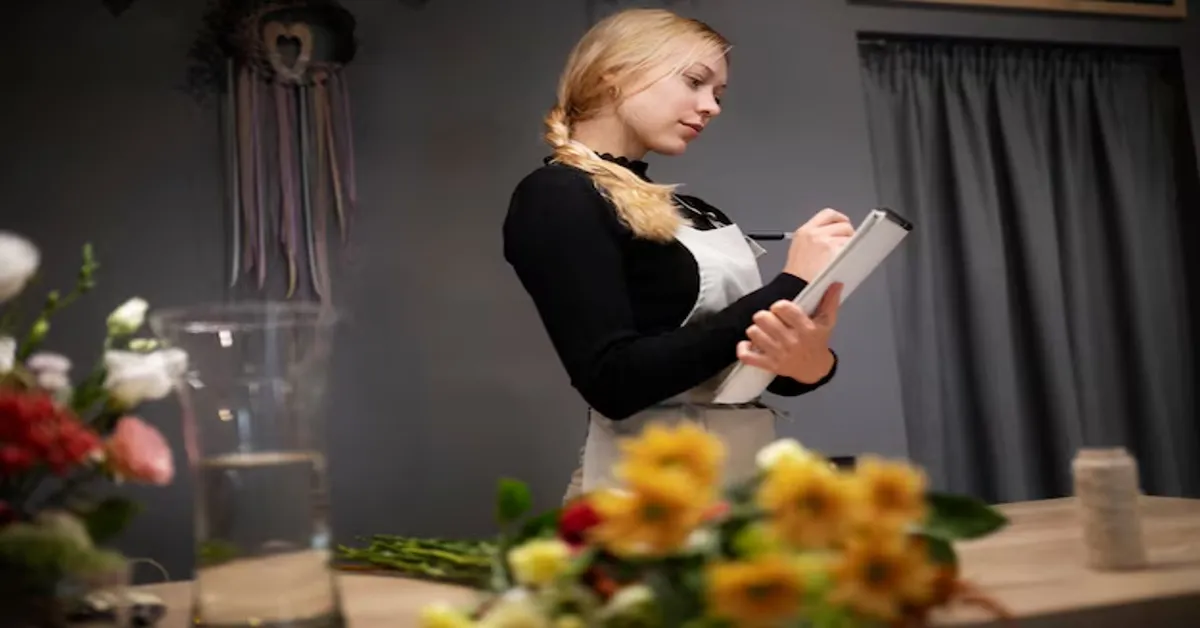In every home, there’s more than meets the eye. Behind closed doors and neatly arranged rooms lies a world of unspoken dynamics. One figure often overlooked is the housemaid—an observer in plain sight. Freida McFadden’s gripping narrative, “The Housemaid Is Watching,” dives into this hidden realm where vigilance reigns supreme.
Imagine a life spent not only cleaning but also absorbing the intricate tapestry of daily interactions and emotions that fill each household. The role of a housemaid extends far beyond dusting shelves or laundering linens; it encompasses an acute awareness of human behavior and unsaid words.
As we peel back the layers, we’ll explore how these silent witnesses navigate complex relationships while carrying out their unacknowledged duties. Join us on this journey The Housemaid Is Watching as we uncover what truly happens when eyes are everywhere—a perspective that reveals both vulnerability and strength within domestic spaces.
Exploring the Themes in “The Housemaid Is Watching” by Freida McFadden
Freida McFadden’s “The Housemaid Is Watching” delves into themes of power, observation, and the hidden struggles within domestic life. At its core, the narrative examines the dynamics between housemaids and their employers, highlighting an unbalanced relationship that often goes unnoticed.
Throughout the story, surveillance becomes a prominent theme. The housemaid isn’t just cleaning; she’s observing every interaction. This vigilance unveils secrets that homeowners might prefer to keep buried. With her keen eye for detail, she gathers insights that reveal both flaws and strengths in family relationships.
Moreover, there’s a stark contrast between perceived freedom and actual restraint. While homeowners may believe they control their environment, it’s often the housemaid who holds unseen power through her knowledge of private affairs. This duality creates tension throughout the plot—an exciting juxtaposition that keeps readers engaged.
Another critical theme is empathy versus detachment. The housemaid develops a unique bond with those she serves while simultaneously maintaining professional boundaries. These emotional layers add depth to her character as she navigates personal feelings against her role as an observer.
McFadden crafts a narrative rich in psychological complexity—a reflection on how appearances can be deceiving and how silent watchers truly see everything happening behind closed doors.
The Intricacies of Household Surveillance
Household surveillance is a complex web of interactions, often unnoticed by those who inhabit the space. It goes beyond mere cleaning and organizing; it involves an acute awareness of behaviors, patterns, and unspoken dynamics within the home. The housemaid becomes more than just a caretaker; they are an observer in a subtle theater of daily life.
Every room tells its own story through clutter or order. A flickering light might suggest tension between family members, while empty plates could hint at unfulfilled appetites—both physical and emotional. Each detail matters in this world where eyes are everywhere yet remain concealed behind carefully curated facades.
The atmosphere shifts with every visit. The energy changes when children laugh or when arguments erupt behind closed doors. Housemaids learn to navigate these nuances quietly, adapting their approach to maintain harmony while fulfilling their duties.
Technology also plays a role in this surveillance landscape. With smart devices becoming common fixtures in homes, housemaids must be aware not only of what unfolds before them but also how unseen cameras may capture moments that families prefer hidden from view.
This intricate dance requires sensitivity and discretion—a tightrope walk between professionalism and personal involvement. Understanding household dynamics adds layers to the responsibilities carried out each day as they balance service with silent observation.
Unveiling the Unspoken Duties of a Housemaid
A housemaid’s role goes far beyond cleaning and tidying. It’s a complex tapestry of responsibilities that often remains hidden behind closed doors. Each day is a delicate balance between chores, expectations, and the unspoken dynamics within the household.
From dusting shelves to organizing closets, their work demands an eye for detail. They anticipate needs before being asked, creating an environment of comfort and ease for homeowners. This foresight requires intuition cultivated through experience—a skill not commonly acknowledged.
Housemaids also play a crucial emotional role in many homes. The Housemaid Is Watching witness family interactions, celebrations, and conflicts without participating in them. Their presence can provide stability during turbulent times or lend support when needed most.
Moreover, they navigate personal spaces with reverence and discretion. Respecting privacy while fulfilling duties is paramount; boundaries are essential in this dynamic relationship. A misplaced item may lead to misunderstandings if trust isn’t firmly established.
The reality is that these unseen duties create an atmosphere where life unfolds smoothly. The housemaid becomes part of the home’s fabric—an unsung hero whose vigilance ensures everything runs like clockwork while remaining largely invisible to those around them.
A Housemaid’s Silent Observations and Insights
Behind the closed doors of a home, housemaids become quiet witnesses to the lives unfolding around them. Their role extends beyond mere cleaning tasks; they observe relationships, moods, and secrets that often remain hidden from the homeowners’ eyes. Each day offers a new landscape of emotions and interactions.
With every sweep of a broom or wipe of a countertop, housemaids pick up on subtle cues that tell stories about family dynamics. A hushed argument over dinner can reveal underlying tensions. The laughter shared during breakfast might mask feelings of loneliness experienced by one family member in private.
They also notice habits—like when someone takes their coffee without sugar or how loved ones prefer their laundry folded. Such details are easy to overlook for busy homeowners but can form an intimate knowledge that makes housemaids feel almost like part of the family—or maybe more like silent observers in an intricate play.
These insights weigh heavily on their shoulders. With great care comes responsibility; they must navigate these truths delicately, often keeping confidences while remaining invisible participants in domestic tales.
Yet this vigilance is not merely passive observation—it shapes their understanding of human nature and personal resilience as well. For many housemaids, these silent observations provide insight into societal structures and emotional complexities rarely acknowledged outside those household walls.
Understanding the Complex Relationship Between Housemaids and Homeowners
The relationship between housemaids and homeowners is often layered with complexity. On the surface, it may seem straightforward—a service exchange. However, beneath this veneer lies a web of emotions, expectations, and unspoken dynamics.
Housemaids inhabit a unique space in their employers’ lives. They are trusted with not just chores but also intimate details about family routines and personal habits. This access can create an invisible bond or tension depending on the situation.
Homeowners might see their maids as merely workers fulfilling tasks, yet they often rely on them for more than just physical support. Emotional labor comes into play here; housemaids bear witness to family interactions that shape their understanding of household dynamics.
At times, this relationship feels unequal. Housemaids may grapple with feelings of being undervalued or overlooked despite their crucial role within the home environment. Their insights can go unnoticed while they quietly observe the intricacies unfolding around them.
Conversely, some homeowners develop genuine respect for their maids’ contributions over time. They recognize that these individuals bring a wealth of experience and perspective to domestic life that enriches both parties’ experiences in unexpected ways.
Conclusion
Housemaids often exist in a space of paradox. They are both invisible and omnipresent, performing their duties while absorbing the world around them. Their role transcends mere household maintenance; it intertwines with human behavior, family dynamics, and personal secrets.
As we’ve explored the themes presented in “The Housemaid Is Watching” by Freida McFadden, it’s clear that housemaids possess an acute awareness of their surroundings. This vigilance allows them to gather insights about the lives they serve—knowledge that can be powerful yet burdensome.
The intricacies of household surveillance reveal not just what is seen but also what remains hidden from view. A housemaid’s silent observations offer a unique lens into people’s lives, highlighting joys and struggles often overlooked by others.
Understanding this complex relationship between housemaids and homeowners sheds light on an unspoken bond forged through trust—and sometimes mistrust. The ramifications of these interactions ripple beyond the walls of any home, impacting how we perceive privacy and vulnerability within our own spaces.
These layers add depth to our understanding of domestic roles in society today. As we reflect on “the housemaid is watching,” we’re reminded that every gaze carries stories untold—stories worth listening to if we dare to look deeper than surface appearances.









